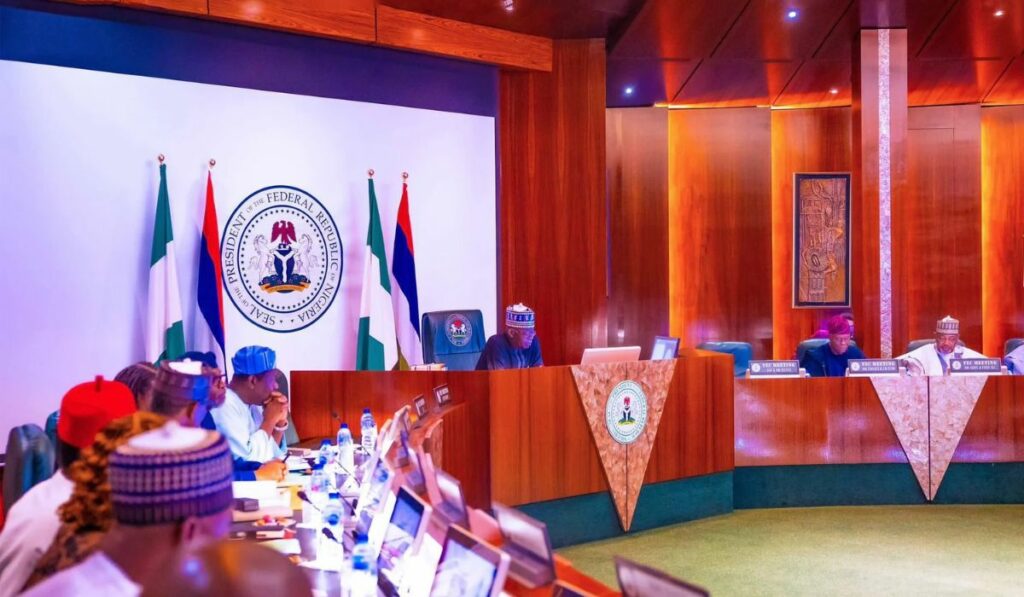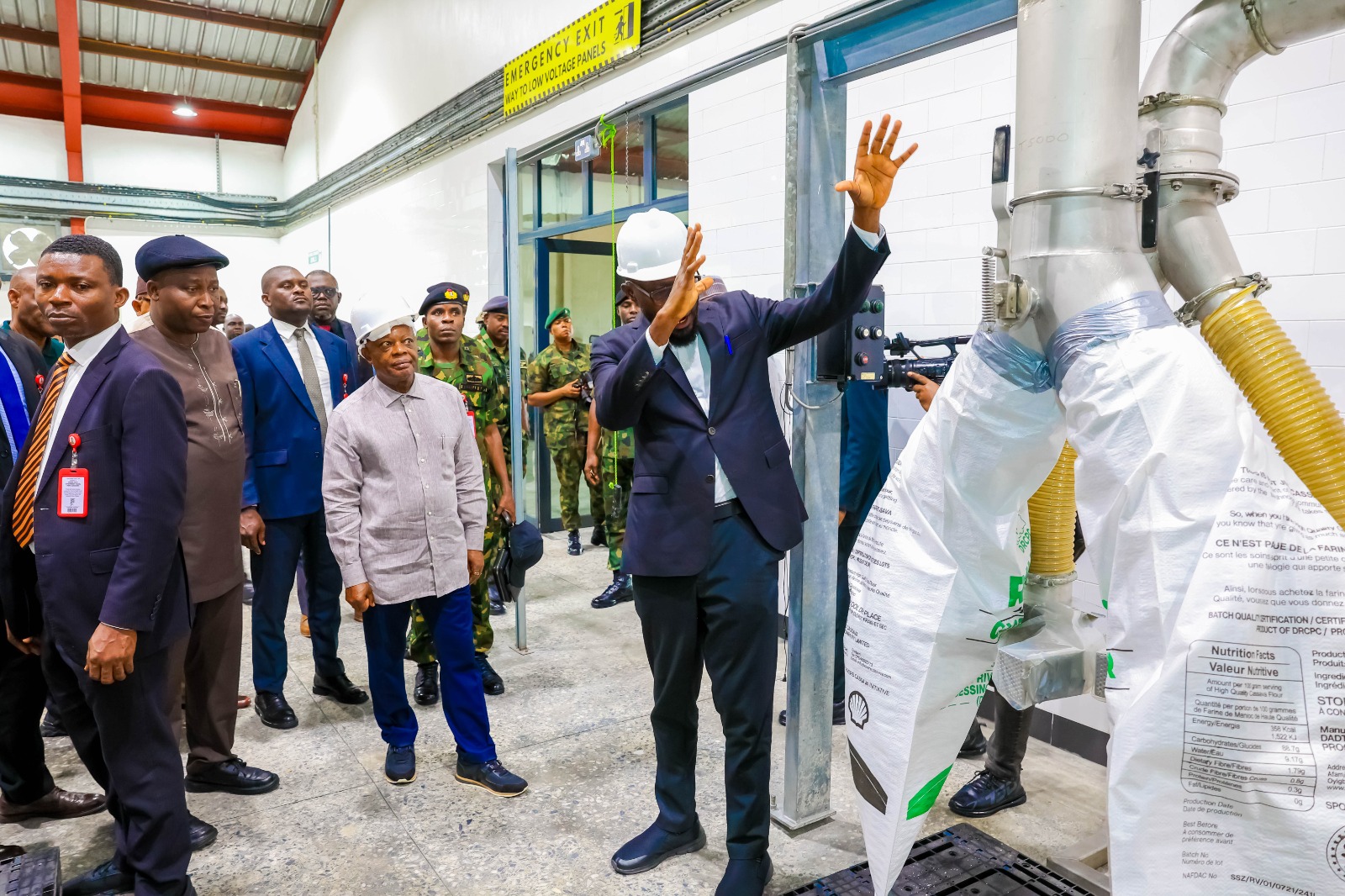Editorial
Nigeria At 55: Of Wasted Years, The Way Forward
Development process. It requires patience, steadfastness, integrity and indeed unrelenting resolve to get things done.
Upon independence in 1960, the founding fathers of the nation grappled with the currents of divides that highlighted our diversity. It was indeed a competition of sorts among the three regions: the Northern, Western and Eastern regions which also typified the three largest ethnic groups of Hausa/Fulani, Yoruba and Igbo.
Each of these regions pursued development programmes, economic integration endeavours and indeed political cohesion. Those were years, when, the regions were viable and indeed wielded stronger influence more than the centre, as would a confederation.
In 1963, Nigeria became a Republic and later adopted Presidential democracy, in place of the parliamentary system that was. During these years, Nigeria was self-sufficient in food production as each region developed its resource base and enjoyed bountiful derivation from its hardwork.
More than any thing else, the founding fathers laid the necessary foundation for infrastructural development, economic growth, political cohesion and indeed inter-ethnic and religious harmony. However, the military incursions of 1966, leading to a Civil War in 1967 and protracted military rule till 1979, in many ways, hampered the sustenance of development efforts and the required actualisation of other set goals.
The infrastructural development programme was abandoned. Agriculture too took a back seat in preference for easy petro-dollars that the nation earned from crude oil sourced predominantly from the Niger Delta.
By the emergence of the Second Republic in 1979, Nigeria’s consumption pattern had changed drastically with the ruling class importing even tooth-pick from other nations. Those years of oil boom also encouraged so much corruption among the ruling class with little or no attention given to basic infrastructure development, investments in education and health, electricity power generation and distribution and indeed human capacity building, resulting in a brain drain.
Little wonder, the military struck barely four years later in December, 1983 and ruled Nigeria for another 16 years. With the three arms of government rolled into one and constitutional powers thereof, exercised by a military council, Nigerians suffered the ripple effects of absolute power, which many know, corrupts absolutely.
Within those years, very little or no meaningful investments were made in the power sector, very little on improving the nation’s education and health profile among many other emergencies, while military officers amassed so much wealth that naturally fashioned the lifestyle of great number of those who made the political ruling class. Therefore, when democracy was reinstated in 1999, most politicians had imbibed so much flamboyant military culture laced with impunity so much that they got farther and farther away, from the electorate, they were supposed to serve.
In the 16 years that followed, successive governments spent N2.740 trillion on electricity, yet power supply remains a problem. There was very little or no consideration for aggressive investment in petroleum by-products development, manufacturing for local consumption and the necessity to open up the country through road infrastructure. Federal roads became death traps, States were created out of exigency and political gratification without commiserate economic independence prior to those 16 years, had become not only a burden to themselves but also to the nation.
Today, many States can hardly pay workers’ salaries, because, unlike the original regions, they lack the necessary economic foundation to be called federating units. Because they lack the foresight to create the necessary investment climate to attract, manufacturing, agricultural and tourism related concerns among several others, their internally generated revenue is almost zero.
It is for that reason that they monthly rush to the centre for hand-outs sourced mainly from oil export, which proceeds have dwindled beyond imaginable ends, thus, raising the urgent need for Nigeria to look elsewhere. This is where we are as a nation. One that cannot harness its enormous resources for the growth and survival of its peoples and instead imports virtually everything the people need.
At 55, a nation-state ought think like a retiring public servant and plans well for family and children. We must together build upon the enviable political legacy bequeathed by the last administration of President Goodluck Ebele Jonathan, if we are to deepen democracy.
In years before the last elections, there were predictions by agencies of developed nations that Nigeria would disintegrate by the year 2015. And judging from the nature of intolerance, hatred, desperation, violent vituperations and arms accumulation, that attended the electioneering campaigns, everything pointed to the actualisation of that prediction.
That is why President Jonathan’s rare statesmanly response to the electoral outcome even as an incumbent on the African Continent should not only be hailed but be built-upon by beneficiaries of his political maturity and help deepen democratic culture in the land. All public officers must respect the dictates of separation of powers as a necessary tool to ensure checks and balances.
Surely, the days are gone when the executive arm determined the type of leadership it needs for both the judiciary and the legislature. Happily, the leadership of the two-chambers of the 8th National Assembly have assured that nothing short of separation of powers and necessary oversight of executive activities will be carried out.
In this regard therefore, we expect the Gen Muhammadu Buhari-led Federal Government to hasten the formation of a federal cabinet to address the many national concerns begging for attention. Nigerians expect an economic team that would help avert an impending economic recession as warned by the Central Bank of Nigeria, recover stolen funds, revamp the petroleum sector, make our refineries work and establish new ones and above all create jobs for the teeming productive youth of the country.
Even so, government must not relent in encouraging the military to bring to a positive end, the protracted insurgency and terrorist activities in the North Eastern part of the country. It should also increase the momentum of the war against oil theft even as government invests in other substitutes to oil, especially agriculture and tourism.
All these would not succeed unless the peoples of the Niger Delta, direct victims of years of oil prospection and production, with their attendant environment problems and despoliation of lauds, swamps and rivers are economically integrated. With the amnesty programme terminating soon, and rebuilding of the Niger Delta yet to gather full steam, now is the time to pursue an oil-bearing areas’ re-integration project to avert another round of violent agitations by the youth.
The insurgency in the North has taken so much toll, Nigeria cannot afford waging two wars, one in the North and another in the South, at the same time. The fatality rate will be huge and loss of capital most devastating.
While The Tide wishes all Nigerians happy independence, we do condole with Muslim families who lost loved ones to the Haji stampede in Sandi Arabia, in which 64 Nigerians have been confirmed killed, 71 wounded and 144 still missing. Happy Independence.
Editorial
That FEC’s Decision On Tertiary Institutions

Editorial
Addressing Unruly Behaviours At The Airports

It began as a seemingly minor in- flight disagreement. Comfort Emmason, a passenger on an Ibom Air flight from Uyo to Lagos, reportedly failed to switch off her mobile phone when instructed by the cabin crew. What should have been a routine enforcement of safety regulations spiralled into a physical confrontation, sparking a national debate on the limits of airline authority and the rights of passengers.
The Nigerian Bar Association (NBA) wasted no time in condemning the treatment meted out to Emmason. In a strongly worded statement, the body described the incident as “a flagrant violation of her fundamental human rights” and called for a thorough investigation into the conduct of the airline staff. The NBA stressed that while passengers must adhere to safety rules, such compliance should never be extracted through intimidation, violence, or humiliation.
Following the altercation, Emmason found herself arraigned before a Magistrate’s Court and remanded at Kirikiri Maximum Security Prison, a location more commonly associated with hardened criminals than with errant passengers. In a surprising turn of events, the Federal Government later dropped all charges against her, citing “overriding public interest” and concerns about due process.
Compounding her woes, Ibom Air initially imposed a lifetime ban preventing her from boarding its aircraft. That ban has now been lifted, following mounting public pressure and calls from rights groups for a more measured approach. The reversal has been welcomed by many as a step towards restoring fairness and proportionality in handling such disputes.
While her refusal to comply with crew instructions was undeniably inappropriate, questions linger about whether the punishment fit the offence. Was the swift escalation from verbal reminder to physical ejection a proportionate response, or an abuse of authority? The incident has reignited debate over how airlines balance safety enforcement with respect for passenger rights.
The Tide unequivocally condemns the brutal and degrading treatment the young Nigerian woman received from the airline’s staff. No regulation, however vital, justifies the use of physical force or the public shaming of a passenger. Such behaviour is antithetical to the principles of customer service, human dignity, and the rule of law.
Emmason’s own defiance warrants reproach. Cabin crew instructions, especially during boarding or take-off preparations, are not mere suggestions; they are safety mandates. Reports suggest she may have been unable to comply because of a malfunctioning power button on her device, but even so, she could have communicated this clearly to the crew. Rules exist to safeguard everyone on board, and passengers must treat them with due seriousness.
Nigerians, whether flying domestically or abroad, would do well to internalise the importance of orderliness in public spaces. Adherence to instructions, patience in queues, and courteous engagement with officials are hallmarks of civilised society. Disregard for these norms not only undermines safety but also projects a damaging image of the nation to the wider world.
The Emmason affair is not an isolated case. Former Edo State Governor and current Senator, Adams Oshiomhole, once found himself grounded after arriving late for an Air Peace flight. Witnesses alleged that he assaulted airline staff and ordered the closure of the terminal’s main entrance. This is hardly the conduct expected of a statesman.
More recently, a Nollywood-worthy episode unfolded at Abuja’s Nnamdi Azikiwe International Airport, involving Fuji icon “King”, Wasiu Ayinde Marshal, popularly known as KWAM1. In a viral video, he was seen exchanging heated words with officials after being prevented from boarding an aircraft.
Events took a dangerous turn when the aircraft, moving at near take-off speed, nearly clipped the 68-year-old musician’s head with its wing. Such an occurrence points to a serious breach of airport safety protocols, raising uncomfortable questions about operational discipline at Nigeria’s gateways.
According to accounts circulating online, Wasiu had attempted to board an aircraft while he was carrying an alcoholic drink and refused to relinquish it when challenged. His refusal led to de-boarding, after which the Aviation Minister, Festus Keyamo, imposed a six-month “no-fly” ban, citing “unacceptable” conduct.
It is deeply concerning that individuals of such prominence, including Emmason’s pilot adversary, whose careers have exposed them to some of the most disciplined aviation environments in the world, should exhibit conduct that diminishes the nation’s reputation. True leadership, whether in politics, culture, or professional life, calls for restraint and decorum, all the more when exercised under public scrutiny.
Most egregiously, in Emmason’s case, reports that she was forcibly stripped in public and filmed for online circulation are deeply disturbing. This was an act of humiliation and a gross invasion of privacy, violating her right to dignity and falling short of the standards expected in modern aviation. No person, regardless of the circumstances, should be subjected to such degrading treatment.
Ibom Air must ensure its staff are trained to treat passengers with proper decorum at all times. If Emmason had broken the law, security personnel could have been called in to handle the matter lawfully. Instead, her ordeal turned into a public spectacle. Those responsible for assaulting her should face prosecution, and the airline should be compelled to compensate her. Emmason, for her part, should pursue legal redress to reinforce the principle that justice and civility must prevail in Nigeria’s skies.
Editorial
Restoring PH’s Garden City Status

-
News2 days ago
Stop politicising Niger Delta’s plight over personal interest, Ex-militant warns Ijaw youths
-

 Nation2 days ago
Nation2 days agoAccolades, Fanfare As Ogbakor Ikwerre President General Celebrates 80th Birthday
-
News2 days ago
Keep faith with Tinubu’s Renewed Hope Agenda – NOA begs Nigerians
-
Featured2 days ago
Rivers LG Poll: APC Wins 20 chairmanship seats, PDP Clears Three
-

 Niger Delta3 days ago
Niger Delta3 days agoBayelsa Tasks Security Agencies On Vigilance Over Waring Communities
-
News2 days ago
Cleric Condemns Increasing Theft in God’s House
-
News2 days ago
Okpebholo, Edo Speaker mourns ex-IGP, Arase
-
News2 days ago
Ojulari: CNPP, civil society groups demand judicial probe into NNPCL

